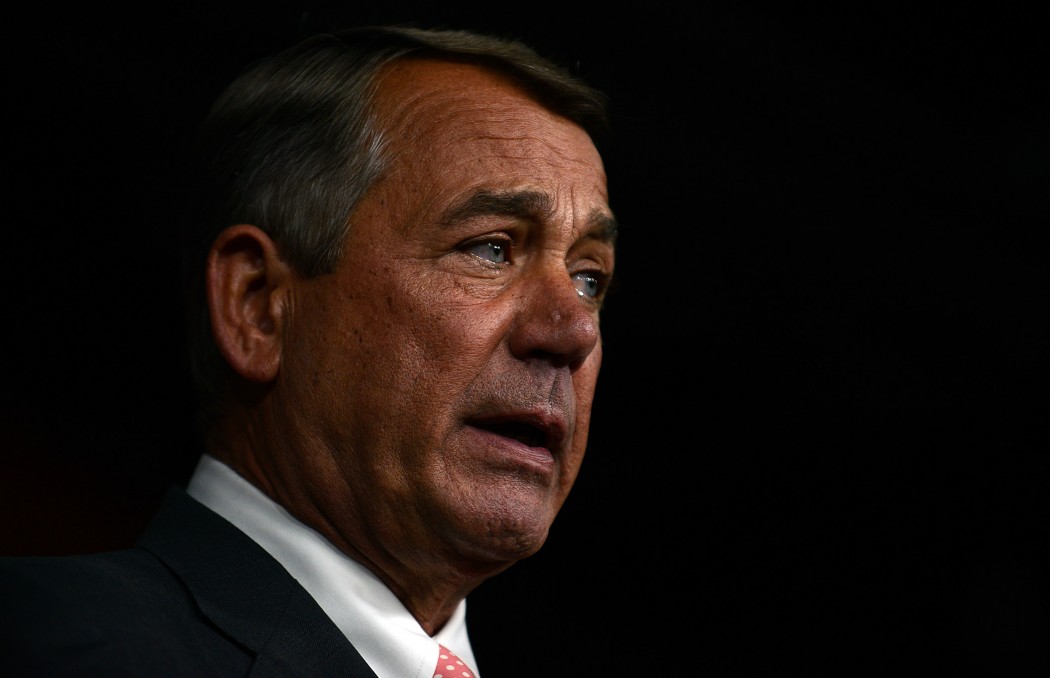Inspired by Pope Francis’s call to work together for the good of all, and tired of his conservative party members speaker of the House of Representatives, John Boehner resigned this week. In what some are calling one of the biggest political stories of the decade the troubles faced by the speaker are emblematic of the polarization in Washington and troubles that run deep in the Republican party.
The biggest American leadership story of the moment is the struggle for John Boehner’s post as speaker of the House of Representatives. The 65-year-old Ohio Republican, known for his propensity for tears, his oddly orange-hued perpetual tan and his ineffectiveness at corralling votes, on Friday announced he would step down from the job at the end of October.
On Thursday, he had wept during Pope Francis’s address to Congress. Then on Friday morning, he stunned fellow Republicans, informing them that he would leave the Speaker’s post he’s held since 2011 and the Congressional seat he’s had for a quarter century.
As Dana Milbank wrote in The Washington Post on Friday, the story of the pontiff and the speaker both had leadership messages. Pope Francis talked about leaders’ obligation to work together and avoid polarization: “A good political leader is one who, with the interests of all in mind, seizes the moment in a spirit of openness and pragmatism.”
Perhaps it was that message that pushed Boehner over the edge. He wanted to be a strong leader, wrote Milbank, but he only intermittently achieved that goal. The conservative caucus “constantly tugged him toward extremism and implacability,” wrote Milbank. Boehner held onto the Speaker’s job but it became impossible to lead. He had resorted to calling his ultra-conservative colleagues “jackass” and “kunckleheads.” I’d wager that any leadership expert would say that name-calling is not a good tactic. Meet your colleagues where they are, is a leadership maxim. Boehner seems to have found that impossible.
Boehner, a devout Catholic, apparently listened to the pope but his extremist colleagues evidently did not. Said Francis, “guard against the simplistic reductionism which sees only good and evil,” and “confront every form of polarization which would divide it into two camps.”
Recommended by Forbes
Instead the tea partiers seem to desire the opposite of what the pope counseled. In the words of Politico’s Mike Littwin, “The party line is that politics don’t work, and the right wing of the party seems determined to prove that it’s true.” Littwin observed that if Boehner had fought the coup staged by the right-wingers, the Republican house majority might have devolved into “a GOP civil war in the middle of a presidential race.”
Who will succeed Boehner? In his (tearful) resignation speech, Boehner endorsed House Majority Leader Kevin McCarthy, a Californian who has only held the majority leader’s job since last summer. CNN reported that McCarthy could face opposition from GOP hardliners over his remarks about amnesty for undocumented immigrants.
McCarthy has been telling television audiences that he wants to fix government fundamentals like passing a six-year highway bill and reorganizing government agencies to do away with duplication, instead of shutting down the government over Planned Parenthood funding. But he has challengers. AP reports today that the No. 3 House Republican, Steve Scalise of Louisiana, Budget Committee chairman Tom Price of Georgia and Rep. Cathy McMorris Rodgers of DC are already vying for Boehner’s job. Former vice presidential nominee Paul Ryan of Wisconsin endorsed Price after saying he didn’t want the post himself.
The next Speaker will face the same leadership challenges as Boehner: raising the debt limit, lifting statutory budget caps, reauthorizing the Export-Import Bank, and other hotly debated issues. This while President Obama has said he will veto many measures backed by the right wing of the GOP.
It will likely take until next week to pick Boehner’s replacement. “It is absolutely fluid right now,” Rep. Mick Mulvaney of South Carolina, a member of the right-wing House Freedom Caucus that pushed Boehner out, told the New York Times.
Forbes contributor Neil Assur has named some other possible candidates, including Daniel Webster of Florida, who has said he wants the job, Virginia Foxx of North Carolina, libertarian-leaning Mike Coffman of Colorado, libertarian Bob Barr of Georgia and Mac Thornberry of Texas.
The hardliners still have the power to derail, if not control, a moderate agenda. Boehner’s replacement will need supreme leadership skills to avoid more deadlock. “I am looking for a leadership slate that is looking to govern,” Rep. Robert Dodd of Illinois, who is chairman of the pragmatist Tuesday Group, told the New York Times. “We are not sent here to generate gridlock by catering to ideological extremes.” Boehner failed to break that gridlock. His successor will face the same barrier and a profound test of leadership.






